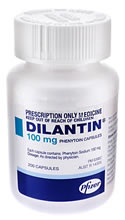Top Class Actions’s website and social media posts use affiliate links. If you make a purchase using such links, we may receive a commission, but it will not result in any additional charges to you. Please review our Affiliate Link Disclosure for more information.

Dilantin (Phenytoin) is an anticonvulsant, a drug used to treat various types of seizures. It can be effective against epilepsy, grand mal seizures, and even certain types of abnormal heart rhythms. Seizures are situations where the biological circuitry of the brain misfires, resulting in abnormal “signals” propagating through the nervous system. The most obvious consequence is seizures where a person convulses, but some seizures are much more subtle, and can be mistaken for “zoning out” or daydreaming.
Drugs like Dilantin are a godsend to people who suffer from this disorder. Older drugs were merely powerful sedatives that left patients barely able to function. However, Dilantin more selectively suppresses abnormal brain activity. This makes Dilantin much more useful for suppressing seizures. However, some patients suffer life-threatening reactions to the drug.
Stevens Johnson Syndrome is an autoimmune reaction, a reaction wherein the body attacks itself using the same systems that normally control disease organisms. In the case of SJS, the body attacks its own skin, causing a rash, followed by blisters, sores, and ultimately ulcers. The damage can spread to the eyes and internal organs. For some patients, the disease can be fatal. Even survivors may face life-long complications, like disfiguring and disabling scars, blindness and impaired organ function. Many questions remain about SJS, but it is known that the vast majority of cases are triggered by various drugs, including Dilantin.
The most extreme cases of SJS may escalate to a condition called Toxic Epidermal Necrolysis or TEN. TEN is still an autoimmune disorder attacking the skin, but it is much more severe than “regular” SJS. The damage to the skin is much more severe — patches of the skin die and slough off, leaving burn-like wounds. And the mortality rate jumps to more than 40 percent — higher than some types of the Ebola virus.
A Dilantin class action lawsuit investigation has been launched to explore the possibility of filing a Dilantin lawsuit against the makers of drugs linked to SJS and TEN. The class action lawsuit could allege that drug manufacturers were aware, or reasonably should have been aware, of the risk of SJS and TEN. The Dilantin lawsuit may further allege that drug manufacturers actively downplayed these risks, endangering the lives of patients. Such a lawsuit may take the form of a class action lawsuit or multidistrict litigation.
In general, Dilantin Stevens Johnson Syndrome lawsuits are filed individually by each plaintiff and are not class actions.
Do YOU have a legal claim? Fill out the form on this page now for a free, immediate, and confidential case evaluation. The attorneys who work with Top Class Actions will contact you if you qualify to let you know if an individual lawsuit or class action lawsuit is best for you. Hurry — statutes of limitations may apply.
ATTORNEY ADVERTISING
Top Class Actions is a Proud Member of the American Bar Association
LEGAL INFORMATION IS NOT LEGAL ADVICE
Top Class Actions Legal Statement
©2008 – 2024 Top Class Actions® LLC
Various Trademarks held by their respective owners
This website is not intended for viewing or usage by European Union citizens.
Get Help – It’s Free
Help for Victims of Stevens Johnson Syndrome
If you or a loved one were diagnosed with Stevens Johnson Syndrome (SJS) or toxic epidermal necrolysis (TEN) after taking a prescribed or over-the-counter medication, you may be eligible to take legal action against the drug’s manufacturer. Filing an SJS lawsuit or class action lawsuit may help you obtain compensation for medical bills, pain and suffering, and other damages. Obtain a free and confidential review of your case by filling out the form below.
An attorney will contact you if you qualify to discuss the details of your potential case at no charge to you.
Oops! We could not locate your form.












